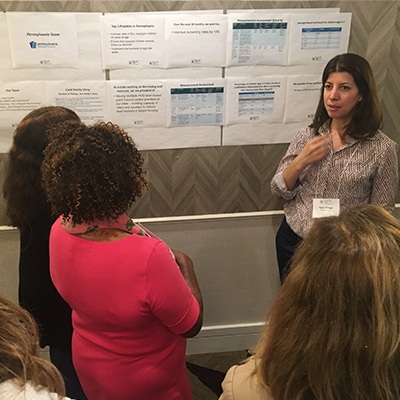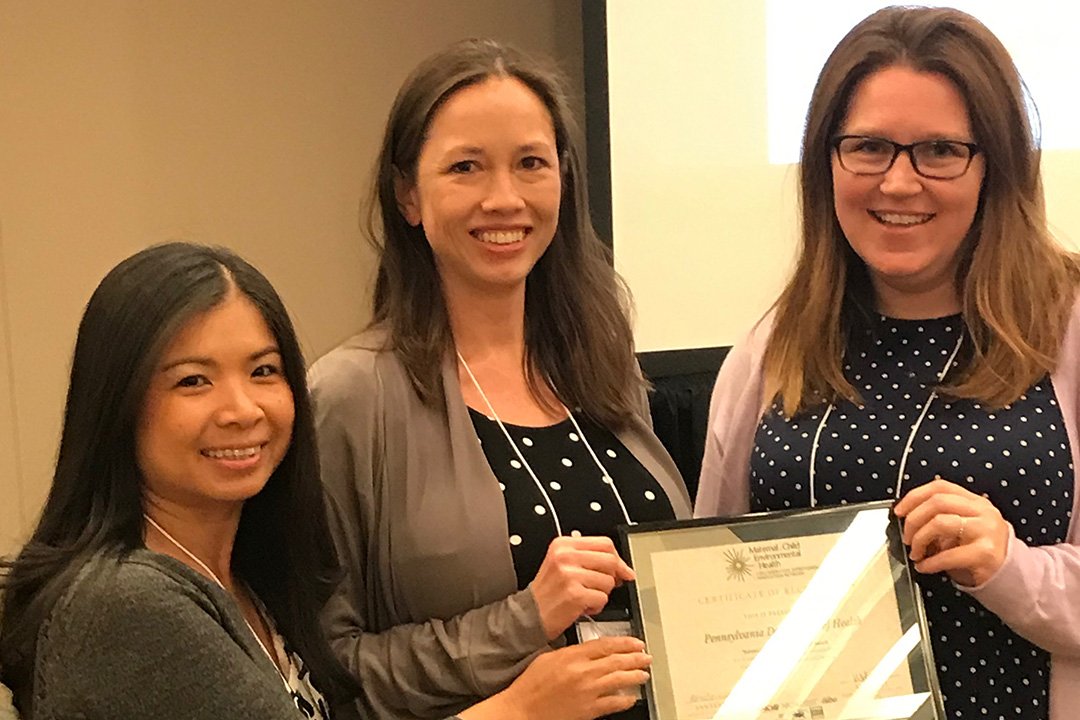
Aim
- Increase the rate of blood lead level (BLL) testing in children < 6 years of age.
- Ensure that lead-exposed children receive follow-up services.
- Implement interventions in high-risk areas.

Results
Education, Training, and Outreach
- Trained staff in six counties performing ongoing work to educate providers on lead poisoning prevention, testing, and follow-up.
- Provided education and distributed lead poisoning prevention materials at area day care centers and schools, landlords, and to property owners.
- Conducted a training for rental property owners and contractors to develop new policies and to strengthen code enforcement and advocate for ordinances.
- Provided outreach in high-risk areas and went door-to-door to provide National Sanitation Foundation filters and water pitchers, as well as literature and linkages to service.
- In one county, staff knocked on more than 300 doors to distribute literature, handed out around 250 “swag bags” at events, and offered home lead inspections.
Interventions
- Piloted a model to increase BLL testing using the medical system that used existing resources (not new or one-time funding) to expand capacity and infrastructure for permanent gains.
- Facilitated partnerships between Head Start centers and Federally Qualified Health Centers to complete onsite BLL testing.
- Demonstrated a 28 percent increase in testing in one site during the pilot period
Worked with providers in high-risk areas to increase capillary blood lead screening. - Implemented activities to increase confirmatory venous blood lead testing and follow-up by promoting Centers for Disease Control and Prevention (CDC) standards and best practices.
Guidelines and Recommendations
- Surveyed local practices on provider knowledge and updated provider recommendations on promoting CDC prevention standards and best practices.

Resources
- Click here to view the full change package of strategies and actions Pennsylvania used as they worked to achieve their aims as part of the Maternal and Child Environmental Health Collaborative Improvement and Innovation Network.

Contact

Contact the Pennsylvania Team:
Elizabeth Dunlevey, Pennsylvania Department of Health – Bureau of Family Health
717-547-3387 – edunlevey@pa.gov


